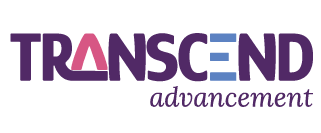How to Train Your Board to be Fundraising Champions
A board that actively engages in fundraising can transform a nonprofit’s success. Yet many board members shy away from fundraising due to a lack of experience or confidence. The good news? With the right training and support, your board can become a powerhouse of fundraising champions.
Step 1: Set Clear Expectations
Board members need to understand that fundraising isn’t just an optional part of their role—it’s a key responsibility. This starts with clear expectations from the beginning.
Include fundraising as a core duty in board job descriptions
Discuss fundraising expectations during the recruitment and onboarding process
Ensure board members understand that fundraising is about building relationships, not just asking for money
When board members know what’s expected of them, they’ll be more prepared to step into their role as fundraisers.
Step 2: Provide Practical, Hands-On Training
Many board members feel uncomfortable with fundraising simply because they don’t know how to do it effectively. A well-designed training program can remove that hesitation.
Offer interactive fundraising workshops that provide real-world scenarios
Conduct role-playing exercises to help board members practice donor conversations
Teach board members how to tell compelling stories about your organization’s impact
Board members don’t need to be professional fundraisers—but they do need confidence in their ability to engage donors.
Step 3: Show Them That Fundraising Goes Beyond the Ask
Fundraising isn’t just about making a direct financial appeal. Board members can contribute in many different ways:
Hosting or attending donor cultivation events
Writing personalized thank-you notes to supporters
Making introductions to potential donors in their network
Sharing impact stories on social media or within their professional circles
Help board members see fundraising as a team effort rather than an intimidating solo task.
Step 4: Equip Them with the Right Tools
A well-prepared board is an effective board. Make sure they have access to resources that set them up for success.
Provide a fundraising toolkit with key talking points, success stories, and FAQs
Share donor profiles and giving history so board members can tailor their outreach
Offer a script or conversation guide to help them confidently engage with potential donors
With the right tools, board members will feel empowered to take action.
Step 5: Lead by Example
Board fundraising is most successful when it starts from the top. If your board chair or executive leadership is actively involved in fundraising, others will follow suit.
Have board members share success stories of their fundraising experiences
Pair new board members with experienced fundraisers for mentorship
Foster a culture of accountability and encouragement within the board
When board members see their peers succeeding in fundraising, they’ll be more willing to participate.
Step 6: Recognize and Celebrate Success
Board members need to see that their fundraising efforts make a difference. Celebrate their wins and reinforce the value of their contributions.
Publicly acknowledge board members who have helped secure major gifts or engaged new donors
Share fundraising impact reports to show how their efforts are driving change
Offer friendly competition or incentives to encourage participation
Recognition not only boosts morale but also strengthens long-term engagement.
Let’s Make Your Board Fundraising-Ready
At TRANSCEND Advancement, we specialize in training nonprofit boards to become confident, effective fundraisers. Our engaging, hands-on workshops equip board members with the skills, tools, and mindset they need to champion your fundraising efforts. Ready to turn your board into fundraising champions?
